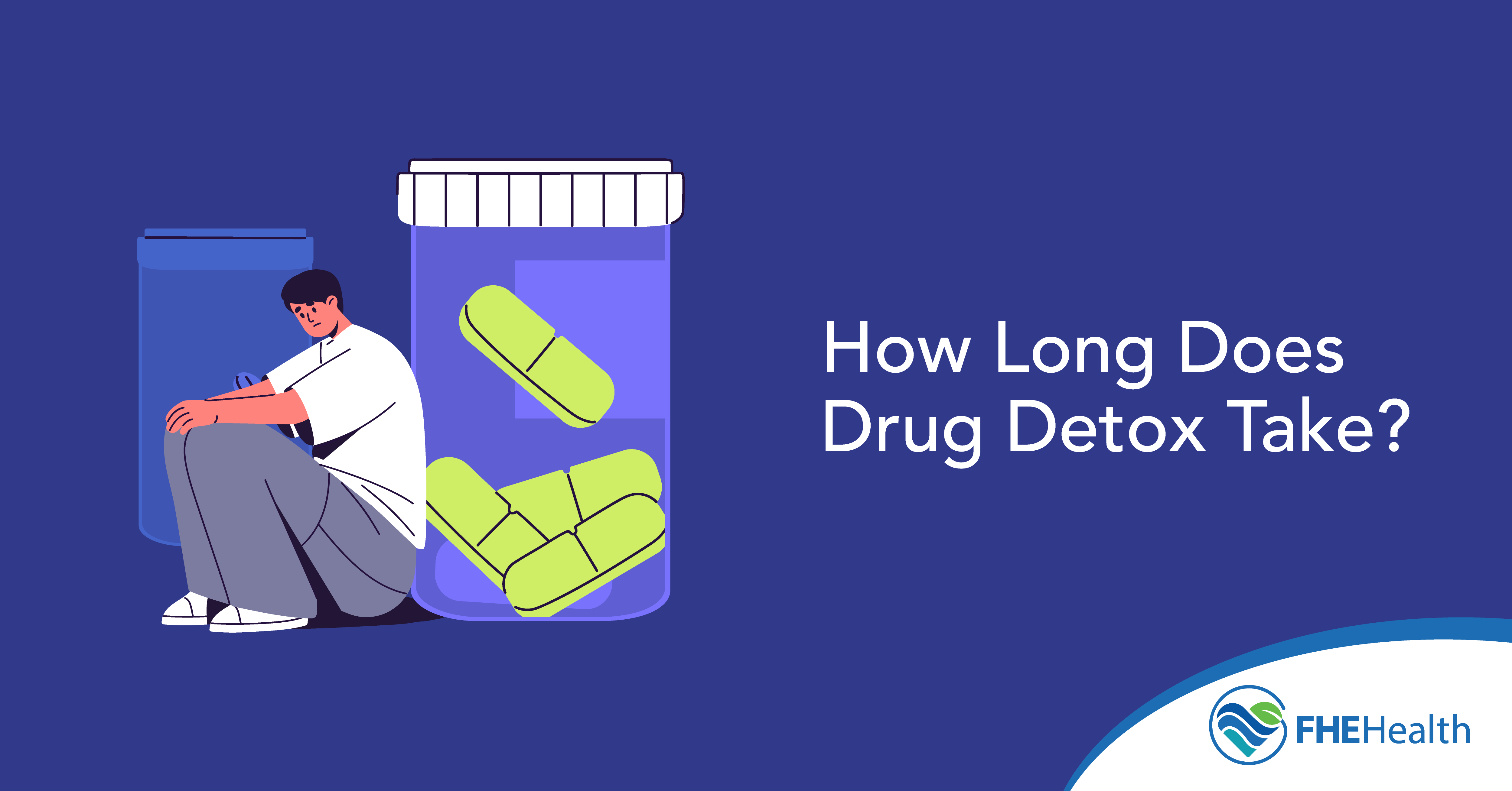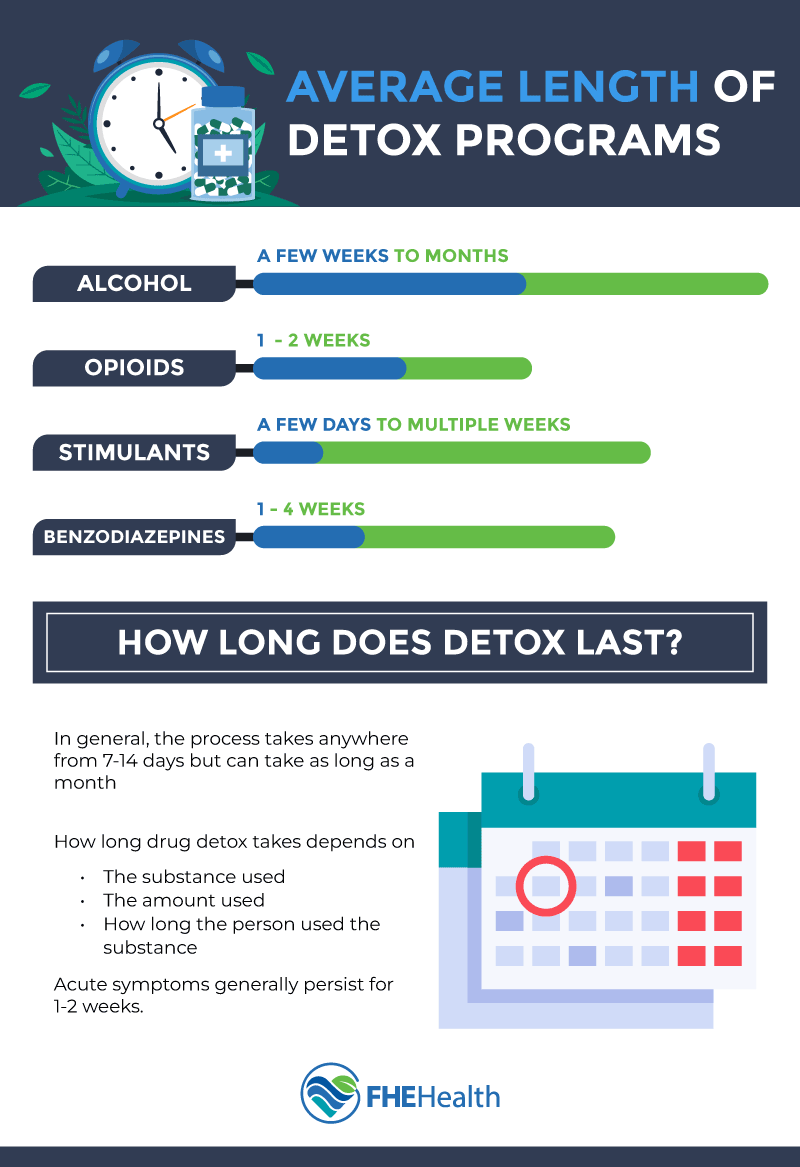
For those with an addiction to drugs or alcohol, the first step toward recovery is detox. During this process, the addictive substance is cleared from your body, preparing you to live a life of sobriety. While detox creates the foundation for recovery, it often brings discomfort and, in some cases, complications. Fortunately, there are several interventions health care providers can take to promote a safe and comfortable detox process.
The Importance of Detox
Detox for drugs and alcohol is a crucial first step in the recovery process for those living with substance use disorders. At this time, the body begins to eliminate the harmful substances and starts the healing process. For many people, this important first step is one of the most difficult due to risks and complications.
When an individual uses drugs or alcohol for a prolonged period, their bodies become physically and psychologically dependent on the substance. In many cases, the substances affect brain chemistry. At the same time, the body builds up a tolerance, meaning that the person must take more of the substance to achieve the desired effects.
After going off the substance, the individual may experience withdrawal symptoms as their bodies struggle to balance chemicals and hormones. These symptoms range from mild – headaches, nausea, and irritability – to severe – seizures, hallucinations, and extreme confusion or agitation.
Despite the discomfort that often accompanies detox, individuals typically feel better afterward, experiencing improved mental clarity, emotional stability and a greater sense of well-being.
Overview of the Detox Process
Detox is a complex process that impacts the individual’s physical and cognitive functioning. During the initial phase, the liver begins to break down the toxins from the alcohol and drugs, clearing harmful substances from the bloodstream. At the same time, the kidneys filter out the byproducts and eliminate them from the body through urine.
As the effects of the drugs and alcohol wear off, the body begins to undergo withdrawal. The nervous system becomes hyperactive, producing symptoms such as anxiety and sweating, while the brain chemistry experiences significant disruptions due to a lack of the substances it’s come to rely on. This can lead to depression, irritability, and mood swings.
As symptoms intensify and eventually peak, the nervous system becomes dysregulated, producing fever, high blood pressure and an increased heart rate. Additionally, the individual may experience digestive issues as the body continues to eliminate toxins.
For most people, symptoms peak and then begin to decrease within the first 48-72 hours after they’ve last used a substance. At that point, the body and brain work to rebalance, resulting in improved mood, cognitive functioning, and physical health. The immune system begins to function more effectively, and vital organs begin to heal. The total detox process generally takes between three and 14 days.
Factors That Affect Detox Duration
While understanding what happens to the body during detox can help individuals know what to expect, there are several factors that affect how long this process takes. An individual’s general health as well as the substances they used affect how long it takes to flush drugs out from the body.
Individual Health and Metabolism
Physiological factors affect detox duration, with those in good health moving through the process faster while individuals with certain health conditions may have prolonged withdrawal symptoms. For example, chronic conditions such as heart disease or liver disease reduce the body’s ability to cope with the stress of withdrawal, resulting in a longer and more complicated process. Similarly, poor nutrition can slow the detox process, as the body needs enough nutrients to heal and recover.
An individual’s metabolism also affects the duration of the withdrawal process. A faster metabolism lets the body process and remove toxins more efficiently, while a slower metabolism may prolong the duration of detox. There are several variables that impact this mechanism, including age and genetics.
Type of Substance and Usage History
The body’s level of dependence on a substance directly affects the intensity and duration of withdrawal. Substances such as alcohol and opiates change how the brain functions and lead to intense cravings. When the individual stops using these substances abruptly, the brain has to readjust. Frequent or daily use of a substance, a long usage history and a large usage quantity correspond to a longer or more complicated detox process.
Typical Timelines for Common Substances
Different substances uniquely impact an individual’s brain and body, so the detox timeline can depend on the specific substance being eliminated.
Alcohol Detox Timelines
For those wondering how long detox from alcohol takes, it’s important to note that withdrawal symptoms typically begin 6-12 hours after the last drink. During this time, individuals may experience headaches and nausea, anxiety, tremors, irritability, and insomnia. In most cases, these symptoms peak around the 48-hour mark, with the most severe symptoms typically occurring 48-72 hours after the last drink. These symptoms can include seizures, rapid heart rate, hallucinations, and significant confusion. After 72 hours, symptoms generally begin to subside. In total, the individual may experience acute symptoms for 1-2 weeks, though symptoms may linger longer.
Opiate Detox Timelines
Individuals detoxing from prescription painkillers, heroin and fentanyl generally experience withdrawal symptoms within 8-24 hours after their last dose. The most common withdrawal symptoms individuals experience include digestive issues, runny nose, watery eyes, sweating, anxiety, and muscle aches. Similar to alcohol withdrawal, symptoms generally peak around 48-72 hours after the last dose before beginning to decrease in intensity. Altogether, acute symptoms last around 1-2 weeks, though the individual may experience sleep disturbances and anxiety for longer.
Stimulant Detox Timelines
Withdrawal symptoms from cocaine, methamphetamine, and other stimulants set in within several hours to a few days after the last use. Some of the most common symptoms include fatigue, depression, an increased appetite, irritability, and sleep problems. Depending on the substance, these symptoms usually peak around 2-4 days and last a total of 1-2 weeks. Even after detox, many continue to experience cravings and depression for several weeks or months, making professional support vital to long-term recovery.
Medical vs. Natural Detox Approaches
There are two main approaches to detox, including medical and natural. While detox is an unavoidable first step toward recovery, the approach an individual chooses has a significant impact on their comfort throughout the process as well as their chances of long-term success.
The Benefits of Medical Detox
Medical detox occurs under the close supervision of medical professionals trained to recognize discomfort, manage symptoms, and respond quickly in emergencies. This usually takes place in a hospital or specialized treatment center, often including medications and medical interventions to promote comfort and safety.
Those who choose medical detox have access to a range of benefits, including:
- Medical supervision for safe symptom management
- Medication support
- Ongoing monitoring
- A structured environment without access to addictive substances
- Professional support
The Pros and Cons of Natural Detox
Natural detox for drugs, on the other hand, relies primarily on supportive care, counseling and natural therapies. While this option has some benefits, it’s not appropriate for all cases.
Pros
- Focuses on overall well-being
- Incorporates alternative therapies such as yoga and massage
- Can be tailored based on personal preferences and medical needs
- More cost-effective than medical detox
Cons
- Doesn’t provide medical oversight
- May have a higher risk of relapse
- Limited effectiveness for those with severe addictions
- Potential for dangerous withdrawal symptoms
Transitioning from Detox to Recovery
Detox is an important first step toward recovery. While this process may be intensely challenging, individuals typically come out on the other side feeling a deep sense of accomplishment along with improved physical health and mental clarity. However, the work is far from over; after detox, ongoing care becomes paramount to long-term recovery.
Importance of Ongoing Support
Cravings and withdrawal symptoms may linger for weeks or months after detox. Additionally, substance use may be woven into the individual’s daily routine, social life and stress management strategies. After detox, the individual needs ongoing support as they continue to manage cravings and withdrawal, learn new social and life skills, and find effective ways to manage stress or pain without substances.
At FHE Health, we offer residential care and outpatient programs to help individuals navigate the next chapter of their recovery journey. Additionally, we have a dynamic alumni program with resources such as retreats, regular virtual meetings, and life skills support.
If you or someone you know is ready to learn more about drug detox, reach out to our intake specialists for details on our programs.







